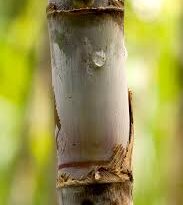The Cashew Shell: Economic Importance, Uses, and By-Products
The cashew shell is the tough outer covering that encases the cashew seed or nut and is part of the fruit produced by the cashew tree (Anacardium occidentale). Despite being commonly referred to as a “nut,” the cashew is technically a seed that grows attached to the bottom of the cashew apple, the fruit of the cashew tree.
The cashew shell is incredibly hard and contains a toxic oil called urushiol, which can cause severe skin irritation similar to poison ivy. Therefore, handling the raw cashew shell requires caution to avoid contact with this toxic substance.
Before the cashew seeds can be consumed, the shells must undergo a thorough processing method to remove the toxic oil. This typically involves roasting the cashew shells at high temperatures to neutralize the urushiol and then carefully shelling and peeling them to extract the edible seeds inside.
Despite its toxicity, the cashew shell has been explored for potential industrial applications. The cashew nutshell liquid (CNSL) extracted from the shell contains phenolic compounds that have been used in various industries, including automotive brake linings, friction materials, paints, varnishes, and lubricants.
While the cashew seed is widely consumed and prized for its rich flavor and nutritional benefits, the cashew shell is primarily utilized for its CNSL and is not suitable for consumption due to its toxic nature. Therefore, it is essential to handle cashew shells with care and ensure proper processing before any industrial use.
The Economic Importance and Uses of Cashew Shell

1. Biomass Energy: Cashew shells are used as biomass fuel for generating heat and electricity, providing a renewable energy source for industrial and residential purposes.
2. Cashew Nut Processing: Cashew shells are a by-product of cashew nut processing. Proper disposal or utilization of cashew shells is essential to prevent environmental pollution and maximize resource efficiency.
3. Organic Fertilizer: Cashew shells can be composted and converted into organic fertilizer, enriching soil fertility and promoting sustainable agriculture practices.
4. Industrial Applications: Cashew shell liquid (CNSL), extracted from cashew shells, is used in various industrial applications such as paints, varnishes, and insecticides, contributing to the manufacturing sector’s growth and profitability.
5. Animal Feed: Cashew shells can be processed into meal or pellets and used as feed supplements for livestock, providing a source of fiber and nutrients in animal diets.
6. Soil Stabilization: Cashew shells can be used as a natural material for soil stabilization and erosion control in construction projects, reducing environmental degradation and promoting land conservation.
7. Waste Water Treatment: Cashew shell-based activated carbon is used in water treatment processes to remove pollutants and contaminants, improving water quality and ensuring public health.
8. Handicrafts and Art: Cashew shells are used in handicrafts and art projects, providing raw materials for creating jewelry, ornaments, and decorative items, supporting local artisans and cultural heritage.
9. Environmental Conservation: Proper management of cashew shells through recycling, composting, or conversion into useful products contributes to environmental conservation by reducing waste and pollution.
10. Research and Development: Ongoing research and development efforts focus on finding new applications and value-added products derived from cashew shells, driving innovation and technological advancement.
11. Construction Materials: Cashew shells can be processed into lightweight aggregates or fillers for producing eco-friendly construction materials such as concrete blocks or panels, reducing the environmental impact of construction activities.
12. Soil Amendment: Ground cashew shells can be mixed with soil as an amendment to improve soil structure, aeration, and water retention, enhancing plant growth and crop yields in agricultural fields and gardens.
13. Biofuel Production: Cashew shell oil can be converted into biofuels such as biodiesel or bioethanol, offering a renewable and environmentally sustainable alternative to fossil fuels.
14. Thermal Insulation: Cashew shell-based products, such as insulation boards or panels, provide thermal insulation for buildings and industrial facilities, reducing energy consumption and greenhouse gas emissions.
15. Carbon Sequestration: Cashew trees, which produce cashew shells, contribute to carbon sequestration and climate change mitigation by absorbing and storing carbon dioxide from the atmosphere.
16. Sustainable Development: Integrating cashew shell utilization into sustainable development strategies promotes resource efficiency, economic growth, and environmental stewardship in cashew-producing regions.
17. Alternative Materials: Cashew shells can serve as alternative materials for manufacturing products such as particleboard, bio-plastics, or paper pulp, reducing dependency on finite resources and minimizing environmental impact.
Read Also: 10 Medicinal Health Benefits Of Banisteriopsis caapi (Ayahuasca)
The Products and By-products That Can Be Derived From Cashew Shell

1. Cashew Shell Liquid (CNSL): CNSL extracted from cashew shells is used in various industrial applications such as paints, varnishes, and insecticides due to its chemical properties and versatility.
2. Cashew Shell Powder: Ground cashew shells can be processed into powder and used as an abrasive or filler in manufacturing processes, such as friction materials, polishing agents, or industrial coatings.
3. Cashew Shell Charcoal: Charcoal produced from cashew shells is used as a fuel source for cooking, heating, or industrial processes, providing a renewable and cost-effective alternative to traditional fuels.
4. Cashew Shell Oil: Cashew shell oil extracted from cashew shells contains valuable compounds such as anacardic acid and cardol, which have potential applications in pharmaceuticals, cosmetics, and industrial products.
5. Cashew Shell Residue: Residual materials from cashew shell processing, such as fibers or fines, can be utilized as raw materials for manufacturing composite materials, insulation products, or animal bedding.
6. Cashew Shell Ash: Ash generated from burning cashew shells can be used in agricultural applications as a soil amendment or fertilizer, providing essential nutrients and improving soil pH levels.
7. Cashew Shell Biomass: Cashew shells can be converted into biomass briquettes or pellets for use as a renewable energy source in biomass boilers, power plants, or industrial furnaces.
8. Cashew Shell Carbon: Carbonized cashew shells can be used in water treatment processes as activated carbon adsorbents, removing impurities and contaminants from wastewater or drinking water supplies.
9. Cashew Shell Tar: Tar derived from cashew shells can be used as a binder or adhesive in manufacturing processes for products such as plywood, particleboard, or composite materials.
10. Cashew Shell Insulation: Insulation materials made from processed cashew shells provide thermal and acoustic insulation for buildings, vehicles, or industrial equipment, improving energy efficiency and comfort.
Read Also: 8 Steps to Successful Perennial Pasture Establishment
Frequently Asked Questions (FAQ’s) About Cashew Shell

1. Are cashew shells toxic?
Cashew shells contain a toxic resin called urushiol, which can cause skin irritation or allergic reactions. Proper handling and processing are required to remove or neutralize the toxins before utilization.
2. Can cashew shells be used as animal feed?
Cashew shells can be processed into meal or pellets and used as feed supplements for livestock, providing fiber and nutrients. However, excessive consumption should be avoided due to potential digestive issues.
3. How are cashew shells disposed of in cashew processing industries?
Cashew shells can be disposed of through various methods such as composting, incineration, or conversion into useful products such as biomass fuel, organic fertilizer, or activated carbon.
4. Are there any health risks associated with handling cashew shells?
Handling cashew shells may pose health risks due to their toxic resin content. Workers should use protective equipment and follow safety protocols to prevent skin contact or inhalation of dust particles.
5. Can cashew shell oil be used in cooking?
Cashew shell oil is not suitable for consumption as it contains toxic compounds. However, it can be used in various industrial applications such as paints, varnishes, and insecticides.
6. Are there any environmental benefits of utilizing cashew shells?
Utilizing cashew shells reduces waste and pollution, promotes resource efficiency, and contributes to environmental conservation by providing renewable energy sources, organic fertilizers, and sustainable materials.
7. Can cashew shells be recycled?
Yes, cashew shells can be recycled or repurposed into useful products such as biomass fuel, activated carbon, or insulation materials, reducing environmental impact and promoting circular economy principles.
8. How can cashew shells contribute to sustainable development?
Integrating cashew shell utilization into sustainable development strategies promotes resource efficiency, economic growth, and environmental stewardship in cashew-producing regions, benefiting local communities and ecosystems.
9. Are there any regulations or guidelines for handling cashew shells?
Regulations and guidelines may vary depending on the country or region, but generally, proper handling, storage, and disposal practices are recommended to ensure worker safety and environmental protection.
Read Also: Practical Steps to Convert Printer Cartridges Wastes into Plastic Products









